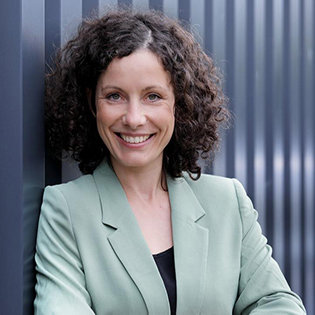Skilled migration - The role of vocational education and training in immigration and integration
Thinking Space 7
How is VET able to assist with integration in the case of economic migration or migration for the purpose of training? How can the immigration of skilled workers be made sustainable through international cooperation? Perspectives from the fields of practice, policy making and research illustrate the prevailing conditions and the available opportunities.

Vocational education and training can make a major contribution to integration within the context of migration. The relevant tasks facing VET are as multifarious as “migration” itself. People arrive in Germany as refugees, skilled workers or trainees. These different life situations each lead to entirely separate challenges and requirements for long-term integration.
Statutory frameworks put in place over the past ten years have provided guidelines for this integration. These include the Recognition Act, the new Employment Ordinance, the Integration Act and the Skilled Immigration Act. Together with activation of the EU Temporary Protection Directive in the wake of the war in Ukraine, they mean that access to the labour and training market in Germany has been constantly expanded.
Nevertheless, legal provisions need to prove their worth in practice. Which phases and stages do immigrants need to go through, and what kind of support is necessary for lasting integration into training and into the labour market in Germany? What role can and should vocational education and training play in this regard? What are the experiences and wishes of the companies, of the administrative authorities, of the research sector and of the immigrants themselves? Do cooperations in and with partner countries offer new opportunities to holistically shape immigration to Germany? How can the previous experiences from the integration of refugees and immigrants also be used in the migration of skilled workers?
Thinking Space 7 provides an overview of the relevant challenges, possible solutions and success factors.
Programme overview
Part 1 (09:40 – 10:40)
Moderator: Birgit Thomann (BIBB)
- Impulse lecture "Immigration in Training and the Labour Market - The Country of Origin Perspective": Prof. Dr. Michael Sauer (Hochschule Bonn-Rhein-Sieg)
Interviews: What does the path to Germany look like? (Prospective) skilled workers on their successes and challenges
- Mohamed Dahmani (Santech Kamen)
- Alexander Studthoff (BIBB)
- Uttam Kumar (Hotel Randsbergerhof e. K.)
- Silvia Niediek (BIBB)
Part 2 (10:55 – 11:55)
Moderator: Birgit Thomann (BIBB)
The different phases of immigration abroad and in Germany: Parallel discussion rounds
Phase I: Information and advice (Moderator: Sepehr Shahin-Eilanjeghi / BIBB)
- Sabine Kotsch (Association of German Chambers of Commerce and Industry e.V.)
- Sebastian Uffmann (Central Agency for German Schools Abroad)
- Dr. Dirk Werner (German Economic Institute Cologne e.V.)
Phase II: Preparation and accompaniment (Moderator: Silvia Niediek / BIBB)
- Jens Kayser (The Educational Association of the Bavarian Economy (bbw) GmbH)
- Andrea Milkowski (German Agency for International Cooperation (GIZ) GmbH)
- Prof. Dr. Michael Sauer (University Bonn-Rhein-Sieg)
Phase III: Qualification and training (Moderator: Alexander Studthoff / BIBB)
- Christiane Hardt (sequa gGmbH)
- Heinz Rittmann (Building Associations NRW)
- Dr. Michael Sauter (ZWH)

Christiane HardtProject manager at sequa gGmbH
“The ‘Handwerk bietet Zukunft’ (‘Craft Trades Offer a Future’, HabiZu) is collating valuable experiences. It is indeed possible. Small and medium-sized craft trade companies are also adopting largely digital pathways to recruit skilled workers from third countries in a fair manner. But this is still a tough and protracted procedure. If we are to have higher numbers of immigrants, then we need more streamlined regulatory processes and permanent support structures for SMEs.”